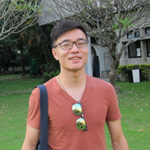Tutorial 1. Tuesday, June 11th 09:00-10:30 (#102, 1F)
Powerful Data Analysis and Composition with the UNIX Shell
More Information : http://www.smiffy.de/icwe-2019/
by Andreas Schmidt and Steffen Scholz (Karlsruhe Institute of Technology, Germany)
Short Bios :

Prof. Dr. Schmidt(1),(2) a professor at the Department of Computer Science and Business Information Systems of the Karlsruhe University of Applied Sciences (Germany). He is lecturing in the fields of database information systems, data analytics and model-driven software development. Additionally, he is a senior research fellow in computer science at the Institute for Applied Computer Science of the Karlsruhe Institute of Technology (KIT). His research focuses on database technology, knowledge extraction from unstructured data/text, Big Data, and generative programming. Andreas Schmidt was awarded his diploma in computer science by the University of Karlsruhe in 1995 and his PhD in mechanical engineering in 2000. Dr. Schmidt has numerous publications in the field of database technology and information extraction. He regularly gives tutorials on international conferences in the field of Big Data related topics and model driven software development. Prof. Schmidt followed sabbatical invitations from renowned institutions like the Systems-Group at ETH-Zurich in Switzerland and the Database Group at the Max-Planck-Institute for Informatics in Saarbrucken/Germany.

Dipl.-Ing Dr. Steffen G. Scholz(2) has more than 15 years of R&D experience in the field of polymer micro & nano replication with a special focus on injection moulding and relevant tool-making technologies. He is an expert in process optimization and algorithm design and development for micro replication processes. He studied mechanical engineering with special focus on plastic processing and micro injection moulding and obtained his degree as from the University of Aachen (RWTH). He obtained his PhD from Cardiff University in the field of process monitoring and optimization in micro injection moulding and led a team in micro tool making and micro replication at Cardiff University. Dr. Scholz joined KIT in 2012, where he is now leading the group for process optimization, information management and applications (PIA).
(1) Institute for Automation and Applied Informatics
Karlsruhe Institute of Technology
Karlsruhe, Germany
email: { andreas.schmidt | steffen.scholz }@kit.edu
(2) Department of Computer Science and Business Information Systems
University of Applied Sciences
Karlsruhe, Germany
emai l: andreas.schmidt@hs-karlsruhe.de
Primary email contact : andreas.schmidt@kit.edu
Brief description :
For data analysis and knowledge discovery, typically we load the data into a dedicated tool, like a relational database, the statistic program R, mathematica, or some other specialized tools to perform our analysis.
But often, there is also another option, which can be performed on nearly every computer, having the necessary amount of mass-storage available. Many shells, likebash,csh,…provide a bunch of powerful tools to manipulate and transform data and also to perform some sort of analysis like aggregation, etc. Beside the free availability, these tools have the advantage that they can be used immediately, without transforming and loading the data into the target system before. Another important point is, that they typically are stream based and so, huge amounts of data can be processed, without running out of main-memory. With the additional use of gnuplot, ambitious graphic plots can easily be generated.
The aim of this tutorial is to present the most useful tools like cat, grep, tr, sed, awk, comm, uniq,
join, split, bzip2, wget, etc., and give an introduction on how they can be used together. So, for example, a wide number of queries which typically will be formulated with SQL, can also be performed using the tools mentioned before, as it will be shown in the tutorial. Also, selective data extraction from different webpages and the recombination of this information (mashups) can easily be performed.
The tutorial will also include hands-on parts, in which the participants do a number of practical data-analysis, transformation and visualization tasks.
Target Audience:
Level: Intermediate -Participants should be familiar using a shell like bash, csh, DOS shell, …
Materials to be distributed to the attendees:
- Slideset
- Command refcard
- Practical exercises
Duration: 3 hours
| Introduction | 15 min. |
| Commands/tools for structured data | 45 min. |
| Hands-on Part I | 30 min. |
| Commands/tools for unstructured data | 30 min. |
| Visualization | 30 min. |
| Hands-on Part II | 30 min. |
Software Requirements for the hands-on parts:
- Unix and Mac users: none, the needed tools are already part of your distribution
- Windows users: Please install cygwin on your computer (https://www.cygwin.com/).
gnuplot must be additional selected during the cygwin installation process.
Tutorial 2. Tuesday, June 11th 09:00-10:30 (#103, 1F)
Deep Learning-based Sequential Recommender Systems: Concepts, Algorithms, and EvaluationsPresentation Material
by Hui Fang (Shanghai University of Finance and Economics, China), Guibing Guo (Northeastern University, China), Danning Zhang (Shanghai University of Finance and Economics, China), and Yiheng Shu (Northeastern University, China)
Short Bios :
Hui Fang (Assistant Professor, School of Information Management and Engineering, Shanghai University of Finance and Economics, China)

Dr. Hui Fang is an Assistant Professor in Research Institute for Interdisciplinary Sciences. She received her Ph.D. from the School of Computer Engineering, Nanyang Technological University, Singapore. Her main research interests include trust prediction in online communities, personalized product/social recommendation, link prediction and data-driven decision making. Her research has been published in top conferences like IJCAI, AAA and AAMAS. Presently she is the Associate Editor of the ECRA journal, and invited referees of other journals like TKDE, Cybernetics, and DSS. She also serves as a Program Committee Member for international conferences, including UMAP and IJCAI, etc.
Guibing Guo (Associate Professor, Software College, Northeastern University, China)

Dr. Guibing Guo is an Associate Professor in the Software College, Northeastern University, Shenyang, China. He received a Ph.D degree in computer science at Nanyang Technological University, and did a post-doc at Singapore Management University. His research interests include recommender systems, deep learning, social network analysis and data mining. The main research focus is to resolve the challenges of recommender systems, including data sparsity, cold start, diversity and so on. He is the original author (and now the team leader) of the open-source library for recommender systems, LibRec, which implements a large number (over 90) of recommender algorithms.
Yiheng Shu (Software College, Northeastern University, China)

Yiheng Shu is an undergraduate student of Software College, Northeastern University, Shenyang, China. His research interests are recommender system and deep learning.
Danning Zhang (School of Information Management and Engineering, Shanghai University of Finance and Economics, China)

Danning Zhang is an undergraduate at Shanghai University of Finance and Economics, China. Her research interests are recommender system and deep learning.
Brief Description :
Deep Learning-based Sequential Recommender Systems: Concepts, Algorithms, and Evaluations
With the development of e-commerce and deep learning technique, deep learning based sequential recommendation has become a hot topic in recommender system field. In this tutorial, we will (1)give a comprehensive overview of sequential recommender systems based on DL techniques. (2)show an original classification framework for sequential recommendation, corresponding to three different recommendation scenarios, and then introduce the representative algorithms under each scenario. (3)summarize the influential factors for typical DL-based sequential recommendation and demonstrate their effects by empirical studies, which can serve as a guidance for sequential recommendation research and practices. (4)summarize challenges of sequential recommender system, and future research directions.
Tutorial 3. Tuesday, June 11th 14:00-17:30 (#102, 1F)
Non-Monotonic Reasoning on the Web
by Matteo Cristani (University of Verona, Italy)
Short Bios :

Matteo Cristani is Senior Researcher in the Department of Computer Science of the University of Verona. His expertis is the semantic web, and in particular, web applications with natural language processing and nonmonotonic reasoning. He has got numerous journal and conference papers in the mentioned communities. He has been the co-organised of the KDWeb (Knowledge Discovery on the WEB) workshop since 2017. The workshop has been a ICWE workshop in 2018.
Brief description :
The development of the communities of Semantic Web and Web Engineering have been interlacing frequently in the past twenty years. Many interesting approaches to practical issues of web engineering involving reasoning techniques have been succesful, as happened, for instance, in the linked data recent investigations. A specific attention has also been posed on the basic issues of porting the web onto the semantic era as related to the development of XML-embedded languages, in particular OWL, as recently approached in many different applicative contexts.
Another community of research has deeply investigated the domain of web as related to reasoning, in a much more general way, and it is generally recognized as the reasoning web community. In this specific case, many studies have been dealing with problems related to change of knowledge, trustability and preference. In many senses, a unifying semantics of the borders among the three communities (OWL-related studies, semantic web engineering, reasoning with web data) can be given by rule-based reasoning systems also known as nonmonotonic reasoning.
Although the basic knwoledge on the above mentioned issues is common in practitioners and researchers of the various areas of web engineering, it is also true that a significant number of scholars and professionals, especially in the early stage of their careers can have a valuable advantage from a neater and wider survey on the nonmonotonic methods as applied to the web.
The tutorial will be articulated in three parts:
- A general introduction to nonmonotonic reasoning systems, with special care for the defeasible reasoning framework. This is introduced in a formal way, by specifying syntax of rules, priorities and defeaters, and the derivation methods based on proof tags, associated with specific derivation and conclusion inferential methods, with the corresponding associated equivalent of proof conditions.
- A survey on the applications of the above to four typical issues of web reasoning:
(a) Solving conflicts in definitions given within reliable sources of knowledge. The example reported is Wikipedia, we show how to determine and possibly solve existing conflicts in definitions;
(b) Constructing debunking methods based on external reliable knowledge. The example reported is The skeptical inquirer, a scientific-oriented dissemination periodical;
(c) Providing decisions about trust on a given individual based on external sources. We show how the theoretical framework named Public announcement logic works;
(d) Ontology alignement with external sources of knowledge. The discovery of conflicts and their resolution using Roget’s thesaurus.
Rule-based reasoning on the semantic web. An introduction to translation techniques and the solution of opinions, generalization, typicalization and other mitigative expressions into lambda-expressions for the translation of natural language onto rule-based semantic systems.
Tutorial 4. Tuesday, June 11th 14:00-17:30 (#103, 1F)
Architectural Styles for the Development of WoT Applications Presentation Material
by Javier Berrocal, Jose García-Alonso and Juan Manuel Murillo Rodríguez (University of Extremadura, Spain)
Short Bios :

Javier Berrocal is an associate professor in the Department of Informatics and Telematics System Engineering at the University of Extremadura (Spain) and co-founder of the company Gloin. He received a PhD degree (with European Mention) in 2014. His main research interests are Mobile Computing, Context-Awareness, Pervasive Systems, Internet of Things and Web of Things.

José García-Alonso is an associate professor in the Department of Informatics and Telematics System Engineering at the University of Extremadura (Spain) and co-founder of the Startups Gloin and Viable. He received a PhD degree (with European Mention) in 2014. His main research interests are eHealthCare, eldercare, Mobile Computing, Context-Awareness and Pervasive Systems.

Juan Manuel Murillo is a full professor of software engineering at the University of Extremadura and co-founder of the Startups Gloin and Viable. His research interests include software architectures, mobile computing, cloud computing, Context-Awareness, eHelathCare and eldercare.
Brief description :
The massive adoption of smart devices has fostered the development of Web of Things (WoT) applications. Due to the limited capabilities of these devices (some of them are battery powered, or the data exchange is limited), these applications have very stringent requirements. The success or failure of these applications largely depends on how they address these requirements, being the resource consumption a crucial one. With different architectural styles we can obtain a similar behaviour, but the selected style directly impacts on the resource consumption.
In this tutorial, we will detai l:
– Different architectural styles that can be used for the development of WoT applications. For that, a running example will be used.
– A tool developed for estimating the resource consumption of WoT applications in early development phases.
– Finally, a tool for the deployment of a WoT application detailed using the OpenAPI standard on both a Cloud environment or an end device.
PRE-REQUISITES :
The technical background desirable to follow the workshops is: being able to read JSON and YAML files.
In order to participate in the hands-on part of the tutorial, a laptop with a text editor and a Web browser will be required.
Tutorial 5. Tuesday, June 11th 14:00-15:30 (#104, 1F)
Exploiting Side Information for Recommendation Presentation Material
by Qing Guo, Zhu Sun and Yin Leng Theng (Nanyang Technological University, Singapore)
Short Bios :

Qing Guo is a Ph.D. candidate in Wee Kim Wee School of Communication and Information at Nanyang Technological University. He focuses on Point-of-Interest (POI) recommendation by exploiting the heterogeneous information in location-based social networks. He obtained his M.Sc. in The University of Hong Kong in 2014 and B.E. from University of Electronic Science and Technology of China in 2013. While doing Ph.D. study, he was also a research associate in SAP Innovation Center network from 2015 to 2018, where he participated in machine learning products development in SAP products. Now, he is a data scientist in Shopee Singapore and continue to work on recommendation research and applications.

Zhu Sun obtained her Ph.D. Degree from School of Computer Science and Engineering, Nanyang Technological University, Singapore, in 2018. During Ph.D. study, she focused on design efficient recommendation algorithms to improve the performance of recommender systems. Her research has been published in leading conferences and journals in related domains (e.g., ACM UMAP, ACM RecSys, IJCAI, AAAI, CIKM). Zhu Sun is active in serving research communities. She is the co-chair for the international workshop on Recommender Systems for Citizens (CitRec) at ACM RecSys 2017, and local arrangement chair of ACM UMAP 2018. She has also been actively participating in industrial projects related to the research. Currently, she is a data scientist in Shopee Singapore with recommendation group.

Yin-Leng Theng is Professor and Director of the Centre of Healthy and Sustainable Cities (CHESS) at Wee Kim Wee School of Communication and Information, and Research Director at the Research Strategy and Coordination Unit (President’s Office) at Nanyang Technological University. Her research interests are mainly in user-centred design, interaction design and usability engineering. She has participated in varying capacities as principal investigator, co-investigator and collaborator in numerous research projects in the United Kingdom and Singapore since 1998.
Brief description :
Recommender systems are indispensable tools to help tackle with the information overload problem. However, with merely relying on user-item interaction data, traditional recommender systems inherently suffer from the data sparsity and cold start issues. To address such issues, a number of recommendation algorithms have been designed by leveraging the valuable side information of users, items and their interactions to compensate for the insufficiency of rating information.
In this tutorial, we would provide a comprehensive analysis of state-of-the-art recommendation approaches with side information in a principle way from two perspectives: representation and methodology. By the end of this tutorial, the audiences would know how the recommendation approaches evolve with more complicated representations and methodologies for using various kinds of side information.
